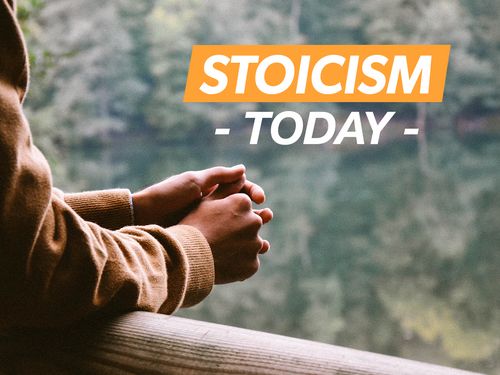What is Stoicism? And why is it relevant today?
Nov 08, 2020 · 4 mins read
0
Share

The basics of Stoicism
Stoicism was a school of ancient philosophy that began in Athens, around 300 BC, with the belief that “virtue” is the most important thing in life. As a form of self-improvement, it’s often seen as the grandfather of personal development, which is why it’s going through a major revival today.
Save
Share
Stoicism is about living rationally and aspiring toward greater wisdom by focusing on doing what’s right. It teaches us to view everything with a bit of emotional detachment so that we don’t get attached to things like wealth and reputation, and don’t get upset when things don’t go our way.
Save
Share
Another central tenet of Stoicism is to take responsibility for your thoughts and actions, while also accepting that many things are beyond your control. By adopting these attitudes, the Stoics claim you can become less vulnerable to emotional distress, and live on an even keel.
Save
Share
Imagine an archer drawing her bow and taking aim. Once she releases the arrow, she accepts that whether or not it hits the target is now out of her hands. The archer’s will is simply focused on doing what’s under her control to the best of her ability. Nothing more.
Save
Share
Focus on what you can actually do, and resign yourself to the unfolding of everything else. You’ll waste less mental energy and be able to focus on the task at hand. This simple distinction can have huge benefits in building your emotional resilience.
Save
Share
Role models play an important role in improving character. Despite superficial differences, people around the world tend to admire similar traits, like wisdom, justice, and courage. Ask yourself: What would your life be like if you could express these qualities a bit more every day?
Save
Share
By visualizing your heroes and asking, “What would so-and-so do in this situation?” you can become more like them. It doesn’t matter who your hero is. The important thing is that they display virtues that you know you can emulate yourself.
Save
Share
Stoicism offers an important lesson about how to see wrongdoing. Nobody commits evil knowingly or willingly. Instead, they operate in moral ignorance, or ‘amathia’, which is the opposite of genuine wisdom. In other words, they’re making a profound error of judgment about what’s right or wrong.
Save
Share
If anything, we should feel sorry for people who do wrong. They’re disabled by a kind of blindness. Thinking this way allows you to respond more intelligently and constructively to those who do even atrocious things. If the aggressor is blind, it’s difficult to see yourself as a target.
Save
Share
Stoics build emotional resilience by mentally rehearsing future setbacks. This is often called “negative visualization.” Picturing events that may seem stressful or even catastrophic is as an opportunity to rehearse a sense of detachment toward things like break-ups, job losses, or even death.
Save
Share
0